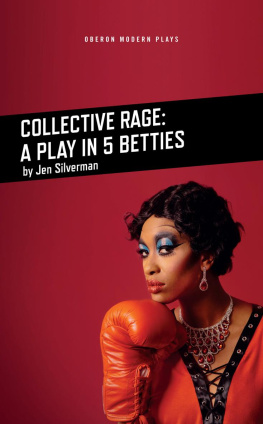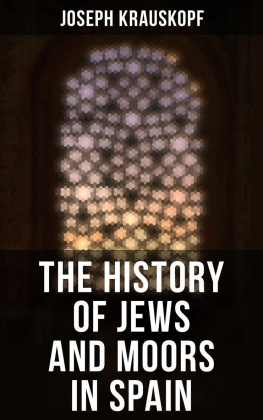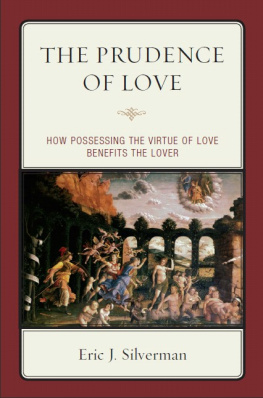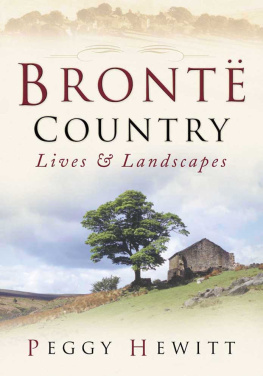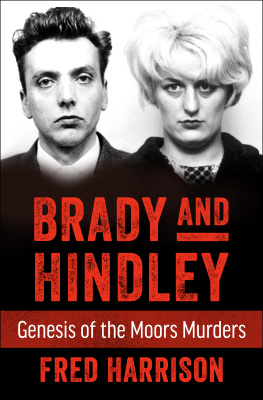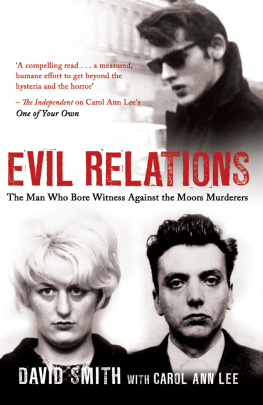First published in 2018 by Oberon Books Ltd
521 Caledonian Road, London N7 9RH
Tel: +44 (0) 20 7607 3637 / Fax: +44 (0) 20 7607 3629
e-mail:
www.oberonbooks.com
Copyright Jen Silverman, 2018
Jen Silverman is hereby identified as author of these plays in accordance with section 77 of the Copyright, Designs and Patents Act 1988. The author has asserted her moral rights.
Daniel Kluger is hereby identified as composer of the music scores in accordance with section 77 of the Copyright, Designs and Patents Act 1988. The composer has asserted his moral rights.
All rights whatsoever in these plays/music scores are strictly reserved and application for performance etc. should be made before commencement of rehearsal to Rachel Viola, United Talent Agency, 888 Seventh Avenue, Ninth Floor, New York, New York 10106, USA. No performance may be given unless a licence has been obtained, and no alterations may be made in the title or the text of these plays/music scores without the authors/composers prior written consent.
You may not copy, store, distribute, transmit, reproduce or otherwise make available this publication (or any part of it) in any form, or binding or by any means (print, electronic, digital, optical, mechanical, photocopying, recording or otherwise), without the prior written permission of the publisher. Any person who does any unauthorized act in relation to this publication may be liable to criminal prosecution and civil claims for damages.
A catalogue record for this book is available from the British Library.
PB ISBN: 9781786824271
E ISBN: 9781786824288
Cover image by Scott Suchman
Printed and bound by 4edge Limited, Essex, UK.
eBook conversion by CPI Group (UK) Ltd, Croydon, CR0 4YY.
Visit www.oberonbooks.com to read more about all our books and to buy them. You will also find features, author interviews and news of any author events, and you can sign up for e-newsletters so that youre always first to hear about our new releases.
Printed on FSC accredited paper
Foreword
by Mike Donahue
Jen and I first met back in 2011, randomly assigned to work together on a ten minute play festival at New Yorks Ensemble Studio Theatre. I think the play had something to do with a daughter mail-ordering a naked Russian man in a box for her mother, in an attempt to get her mother to start living again. I remember haphazardly sound-designing the piece with some crass Russian pop music, and struggling to find a box that was simultaneously large enough to fit a person inside, but alsomost importantlyfree. (We did find one, then had to cart it all around the city on the subway for rehearsals). The festival was a quick seat-of-your-pants thing, and at the time, Im not sure I knew Id just found not only one of my closest collaborators, but also one of my closest friends.
After the short play festival, Jen and I stayed in touch, took road trips to see theatre by writers we both lovedand about nine months later, I got an email asking if Id read a Jen Silverman play called Phoebe In Winter, because this killer downtown theatre company, Clubbed Thumb, was going to do the premiere of it. I read the play immediately, and my mind was blown. It looked nothing like what I was seeing in New Yorkit felt much closer to the theatre Id so admired in Berlin while living there. It was a wild play about an avenging angel from a war-torn country inserting herself into a patriarchal family whose three sons had fought against her own brothers. She upends and militarises the family, recasting the patriarch, his sons, and their maid in one anothers roles, beginning an avalanche of misalliances until the entire class and power structure has been collectively obliterated. We learned a lot together on that first production, about calibrating tone, how to invite the audience into the humour of the play while grounding its seeming absurdity in real pain, anger and history.
Since Phoebe, weve premiered a handful of plays together, and developed and produced a number of others. Each time we start work on a new play together, Im challenged to articulate the tone and vocabulary of Jens work anew. For me, Jen is a writer of limitless imagination, who constantly pushes herself to explore new approaches to structure, the rules of theatricality, and the use of language. She does this with both great rigor and unprecious playfulness. But as much as the plays may look and feel wildly different from one another, for me, Jen always writes with a sharp lens on class, gender and sexualityand grapples with stories of transformation and power: the potential for people to change in startling and empowering ways, and the ways in which people harness and subvert status.
We premiered The Roommate as part of the Humana Festival of New Plays at Actors Theatre Louisville in 2015, and were able to come back to the play together in 2017, opening the main stage season of the Williamstown Theatre Festival with S. Epatha Merkerson and Jane Kaczmarek. In The Roommate, two women from completely different worlds crash into one anothers lives. Sharon has lived a narrow fairly conformist life, and in the wake of her divorce, has resigned herself to an equally unobtrusive lonelinessbut shes a misfit at heart, someone whos never actually felt at home in Midwestern domesticity. Robyn is a loner, someone whose walls are high and whose secrets are largebut at heart, she longs to leave the past behind, settle down, start over. The two women discover surprising resonances as Sharon begins to thaw Robyns aloofness with her own disarming openness. The play unfolds in the quiet kitchen of an Iowan farmhouse, and though it initially masquerades as an odd-couple buddy comedy, even its earliest scenes are taut with deeply buried loneliness, rage, and the potential for thrilling and destructive reinventions. As Sharon and Robyn inspire one another to imagine themselves in profoundly different ways, so do they also empower each other to break and re-make the rules that have governed their lives.
In Collective Rage: A Play In 5 Betties, which we premiered at Woolly Mammoth Theatre Company in 2016, we meet five women, all aggressively inscribed within and unknowingly playing into particular boxes, or roles: a wealthy white Upper East Side Betty whose husband is having an affair, a bi Latinx Betty who works at Sephora, a genderqueer Betty whos just out of prison and runs a boxing gym. The five Betties come together over a series of dinner parties, boxing lessons, and rehearsals for a devised version of the play-within-a-play from Midsummer. Through their interactions with Betties who at first glance are nothing like them, each starts to wake up to the roles in which society has cast her, and each begins to find her agency in redefining, subverting, upending, or entirely annihilating that role. Jen begins the play with an aggressive first-hit of the stereotype each woman embodieswe see them, at first glance, as they see each other. But after each deliberately crude splash of stereotype, the play surprises again and again by the ways in which each character deepens, twists and turns, expands. Betty isall the Betties arecapable of more than we assumed about heror what she assumed about herself. Stereotype gives way to anarchic joy.
Much like


